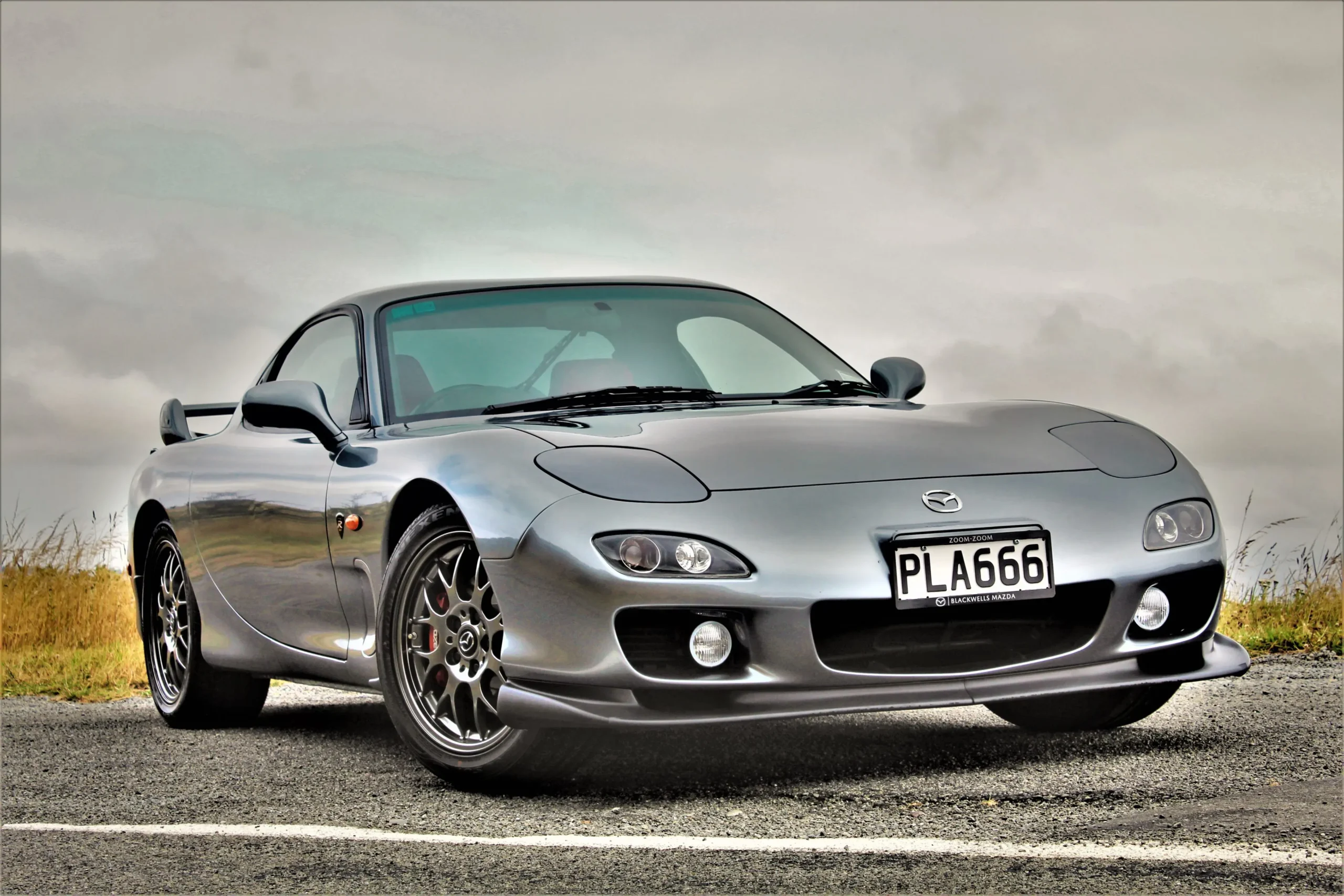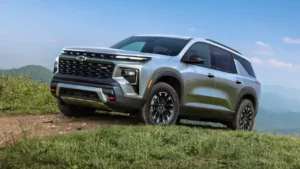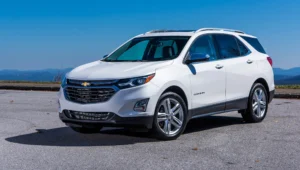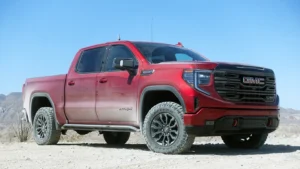Restoring or upgrading a car can be one of the most rewarding experiences for any car enthusiast. If you’re just starting out in the world of project cars or even if you’re a seasoned hobbyist, one key challenge is finding a vehicle that’s not only affordable but also offers solid potential for upgrades and restorations.
With a budget of $5,000 or less, you might think your options are limited, but there are still plenty of great cars out there that fit the bill.
Whether you’re looking for a classic car with character or a modern platform that’s easy to work on, this guide will walk you through some of the best project cars under $5,000. We’ll cover their model years, prices, and what makes them excellent candidates for your next project.
Before covering these cars, you can explore buyer guides to get the right project car.
Buyer’s Guide
When searching for a project car under $5,000, it’s important to have a strategy in place to ensure that you’re getting the best deal for your budget. While many of these cars offer great potential, buying a project car involves more than just finding something that looks good on the surface.
You’ll need to consider factors like the vehicle’s condition, parts availability, and whether or not it fits your skill level. Here’s a comprehensive buyer’s guide to help you make an informed decision before diving into your next project.
Define Your Goals: Decide if you want a classic restoration, a track car, or a daily driver. Know how much time, money, and effort you’re willing to put into the project.
Research Common Issues: Each car model has unique problems. Learn about them beforehand to avoid getting overwhelmed with repairs.
Inspect the Car Thoroughly: Check for rust, engine problems, suspension issues, and the overall condition. Bring a mechanic if needed.
Parts Availability: Ensure the car has strong aftermarket support, so finding parts is easy and affordable.
Set a Budget: Beyond the purchase price, plan for parts, repairs, tools, and possibly professional labor.
Start with a Solid Base: Choose a car with minimal rust and in running condition, as major structural or engine issues can be costly.
Check Car History: Run a Vehicle History Report (VHR) to uncover any major accidents or title issues.
Join Enthusiast Communities: Tap into forums, social media groups, and local car meets for advice and support.
We analyzed factors like availability, ease of modifications, and reliability to ensure practical recommendations. ns. Additionally, insights from automotive forums like CarThrottle and Reddit communities such as r/projectcars to compile a diverse list of vehicles suitable for beginners and seasoned enthusiasts alike.
1. Mazda MX-5 Miata (NA)
- Model Years: 1990-1997
- Price: $3,500 – $5,000
The first-generation Mazda MX-5 Miata is one of the most popular project cars due to its lightweight build, reliable engine, and rear-wheel-drive layout. The Miata’s simplicity makes it a fantastic platform for modifications, whether you want to focus on track performance or just enjoy spirited weekend drives.
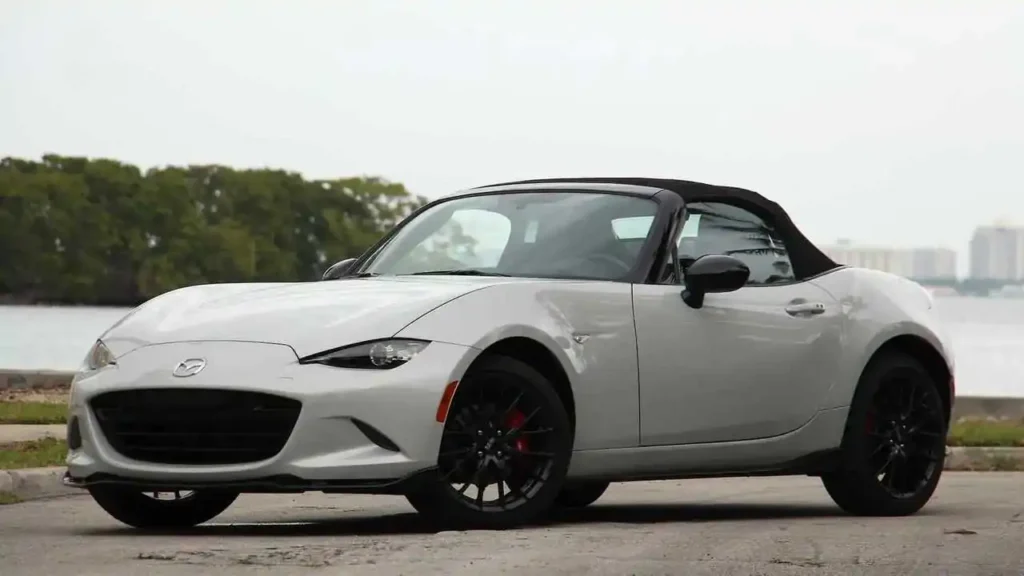
Parts are widely available, and there’s a vast community of enthusiasts, which means plenty of resources and guidance.
From engine swaps to suspension upgrades, the Miata is easy to work on and is well-known for being beginner-friendly. Plus, its affordable nature makes it possible to invest in high-quality upgrades over time without breaking the bank.
2. Ford Mustang (SN95)
- Model Years: 1994-2004
- Price: $2,500 – $4,500
The SN95 Ford Mustang is an excellent budget-friendly project car. Whether you opt for a V6 or a V8, the Mustang offers plenty of potential for modifications, from performance tuning to cosmetic upgrades. The V8 variants, in particular, are a favorite for those looking to build a powerful muscle car on a budget.
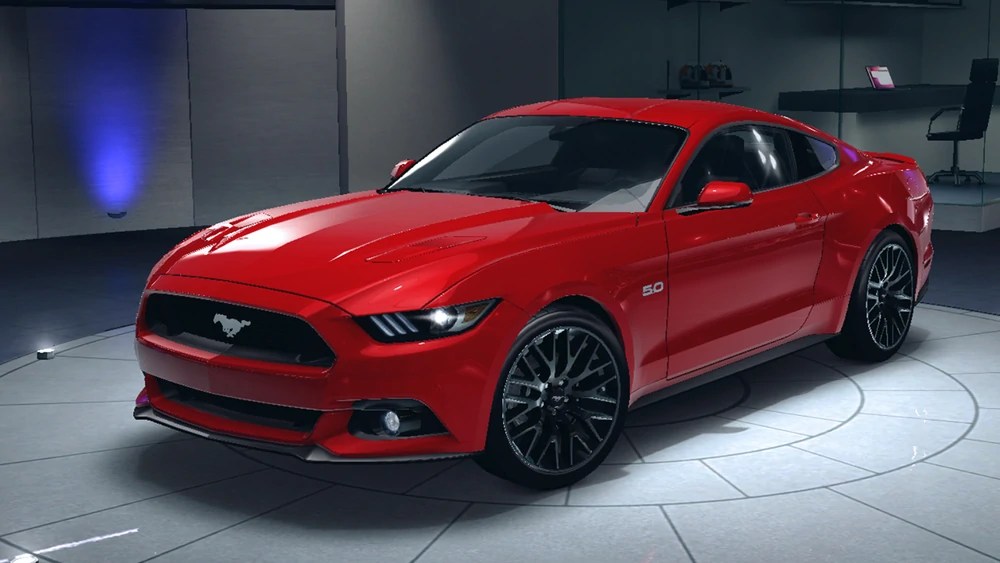
The aftermarket for the Mustang is enormous, making it easy to find performance parts and body kits. You can focus on straight-line speed, or upgrade the suspension for improved handling and take it to the track. With so many available resources, the SN95 is a flexible project car for both beginners and more advanced builders.
3. BMW 3 Series (E36)
- Model Years: 1992-1999
- Price: $3,000 – $5,000
The BMW E36 3 Series has become a go-to choice for project car enthusiasts. Whether you’re interested in a track-focused build or a street cruiser, the E36 platform offers a great balance between performance, handling, and luxury.
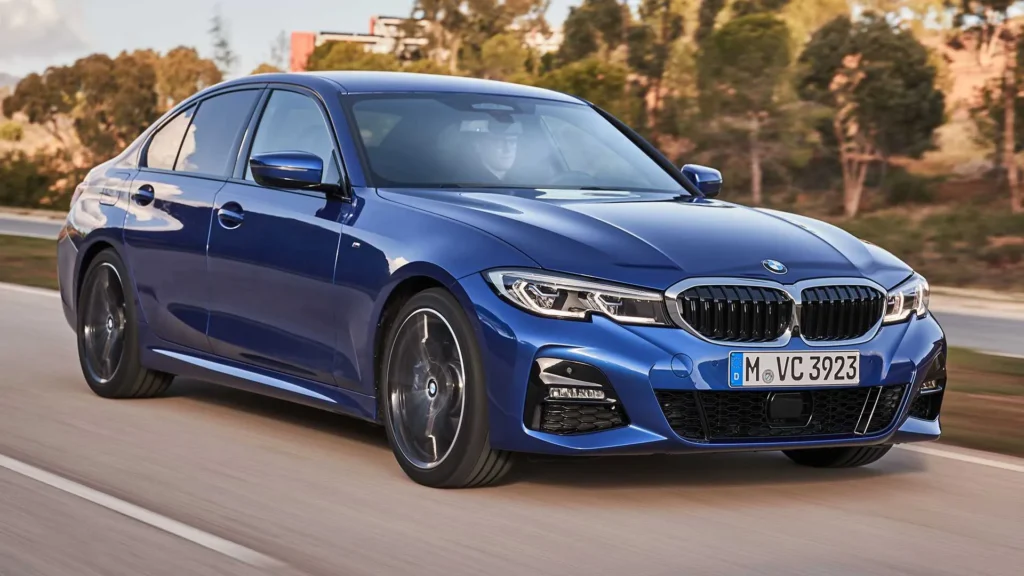
This generation of BMW is known for its balanced chassis and precise steering, making it a pleasure to drive. The 325i and 328i models, with their inline-six engines, provide a solid foundation for engine tuning, suspension upgrades, and more.
The BMW aftermarket is vast, with many affordable options for both performance and cosmetic enhancements. Parts for the E36 are readily available, and there are plenty of guides and resources available for DIY mechanics.
4. Honda Civic (EG or EK)
- Model Years: 1992-2000
- Price: $2,500 – $4,500
The Honda Civic, particularly the EG and EK generations, remains one of the most popular project cars in the car community. Known for their reliability and ease of modification, these Civics are great platforms for performance upgrades and engine swaps.
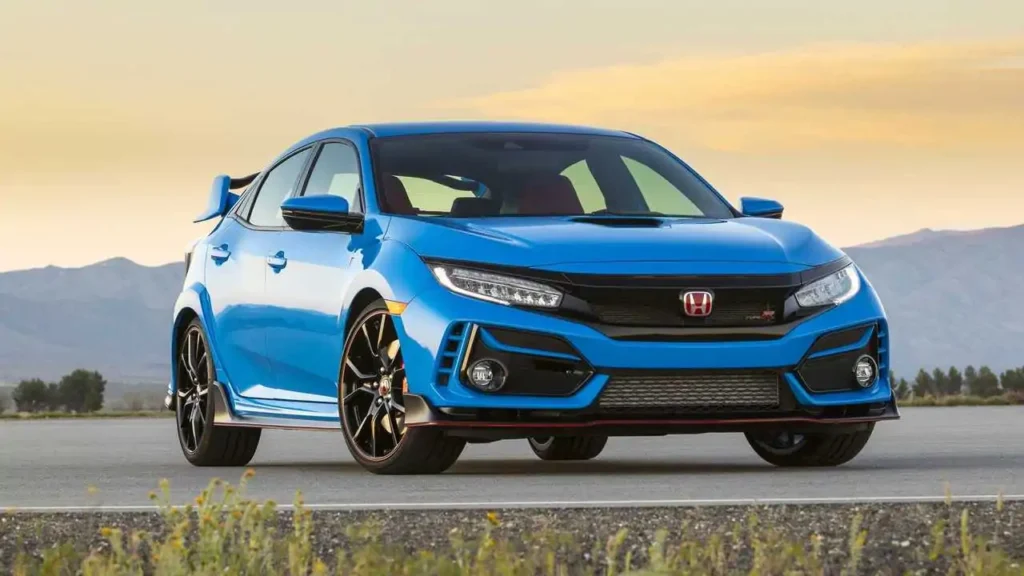
The lightweight chassis and front-wheel-drive layout offer plenty of potential for creating a fun, nimble car. One of the biggest advantages of the Honda Civic is the huge aftermarket support.
From suspension kits to turbochargers, the Civic can be transformed into a street racer, track car, or even a show car. For those looking to get into the world of JDM tuning, the Honda Civic is an excellent starting point.
5. Nissan 240SX (S13)
- Model Years: 1989-1994
- Price: $4,000 – $5,000
The Nissan 240SX is a legendary project car, especially for those interested in drifting or building a high-performance street car. The S13 generation, in particular, has gained a cult following due to its rear-wheel-drive layout and balanced chassis.
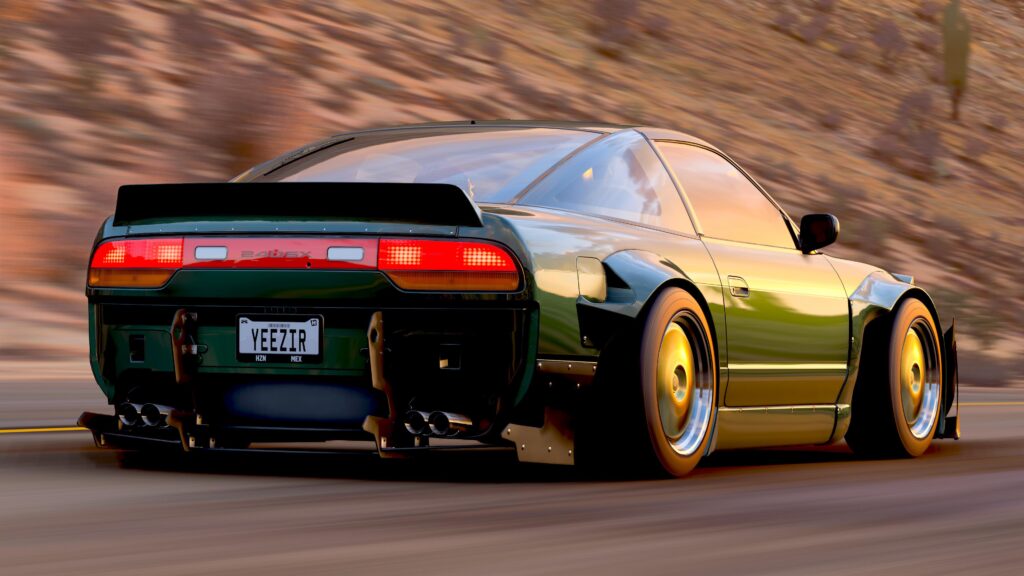
While finding one in decent condition under $5,000 might be a bit of a challenge, it’s still possible with some patience and searching. The 240SX is known for its versatility. Many enthusiasts swap in more powerful engines like the SR20DET or even V8s to boost performance.
It’s also a favorite in the drifting community due to its predictable handling and ability to hold high power outputs. The aftermarket support for the S13 is immense, with many options for body kits, suspension components, and engine upgrades.
6. Chevrolet Camaro (Fourth Generation)
- Model Years: 1993-2002
- Price: $3,000 – $5,000
The fourth-generation Chevrolet Camaro offers excellent value for a project car under $5,000. With both V6 and V8 options available, you can choose a model that fits your performance goals.
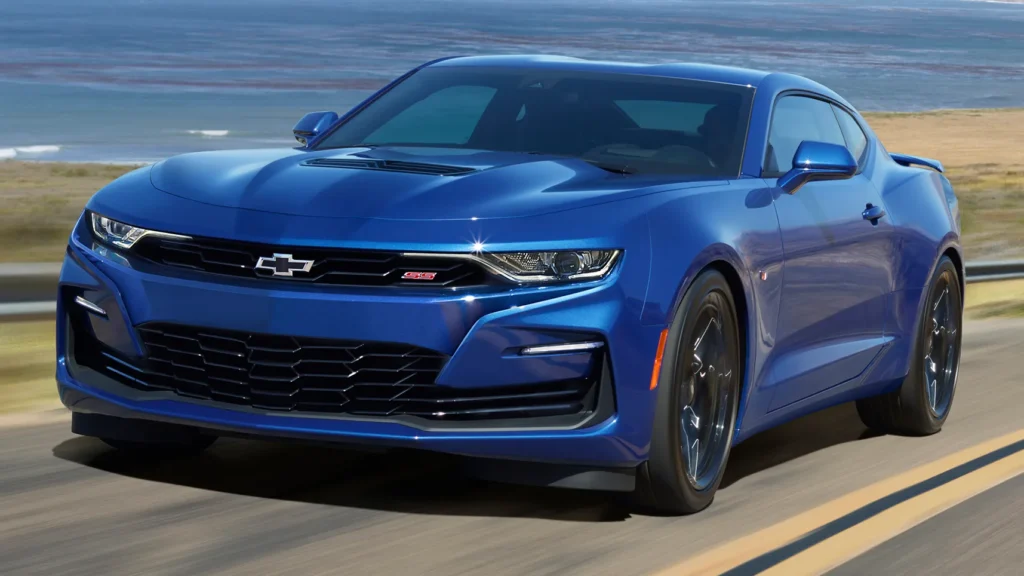
The Camaro’s muscle car heritage means it’s a great platform for straight-line speed, but with the right modifications, it can also become a competent handler. Parts for the Camaro are affordable and easy to find, and there’s a large community of enthusiasts who can offer advice and support.
Whether you’re looking to build a track car, street machine, or just a fun weekend cruiser, the Camaro has plenty of potential.
7. Mazda RX-7 (FB)
- Model Years: 1978-1985
- Price: $3,000 – $5,000
The first-generation Mazda RX-7 (FB) is an iconic sports car that still turns heads today. Known for its lightweight design and unique rotary engine, the RX-7 is a great choice for those looking for something a little different.
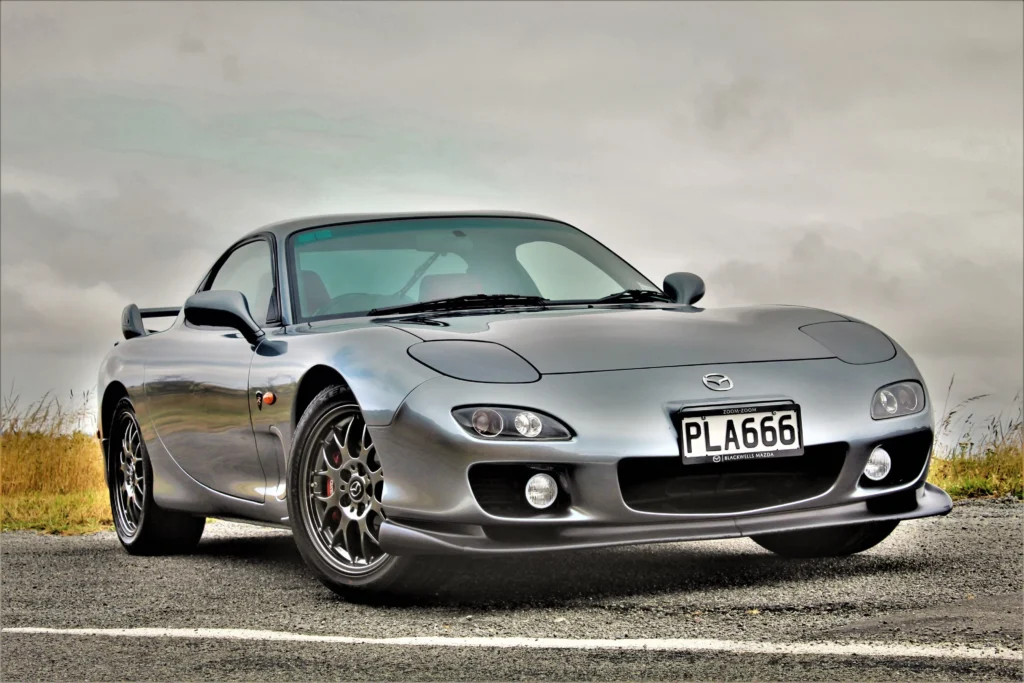
The rotary engine does require some extra care and maintenance, but for enthusiasts, it’s part of the charm. The RX-7 is a great platform for modifications, especially if you’re interested in track racing or autocross.
The aftermarket for the RX-7 is smaller than some of the other cars on this list, but there’s still plenty of potential for upgrades. Whether you’re interested in performance modifications or restoring the car to its original glory, the RX-7 offers a unique project experience.
8. Toyota MR2 (SW20)
- Model Years: 1990-1999
- Price: $4,000 – $5,000
The second-generation Toyota MR2, also known as the SW20, is a mid-engine sports car that offers an exciting driving experience. Its unique layout provides excellent handling dynamics, making it a favorite among enthusiasts looking for a budget-friendly project car.
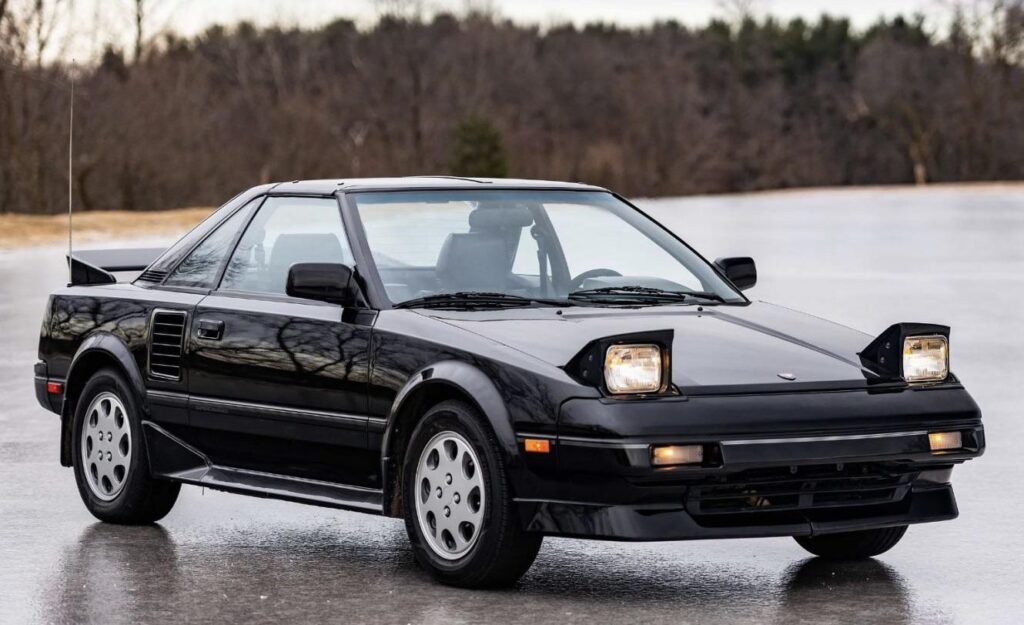
The MR2’s turbocharged models are highly sought after, but even the naturally aspirated versions offer plenty of potential. With the right upgrades, you can transform an MR2 into a serious track car or a fun daily driver.
The mid-engine layout presents some challenges when it comes to working on the car, but for those up to the task, the MR2 is a rewarding project.
9. Volkswagen Golf GTI (MK4)
- Model Years: 1999-2005
- Price: $3,500 – $5,000
The Volkswagen Golf GTI has long been a favorite among enthusiasts for its blend of performance, practicality, and affordability. The MK4 generation is particularly appealing as a project car due to its turbocharged 1.8L engine, which offers plenty of tuning potential.
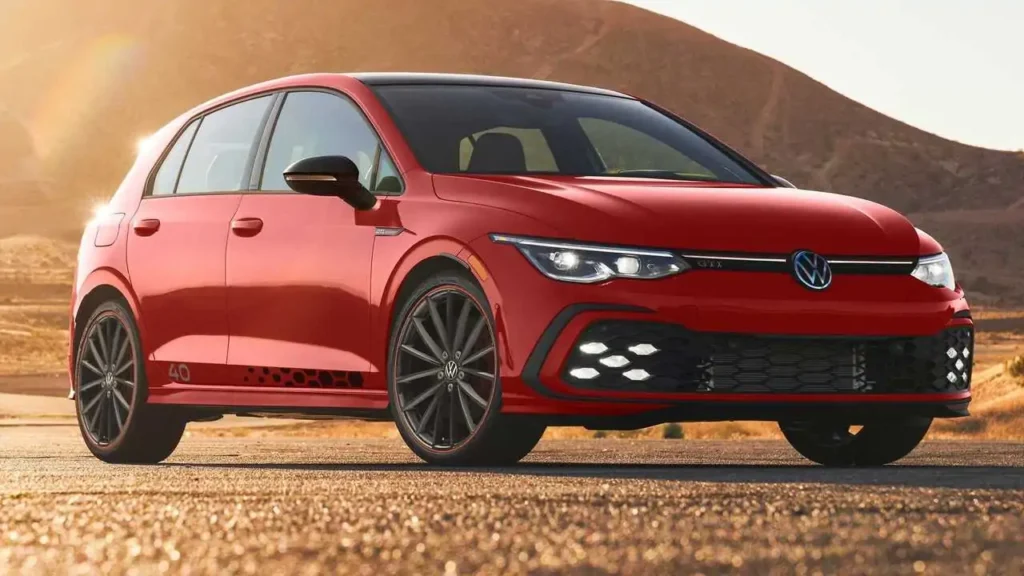
The GTI is also known for its handling, making it a great candidate for a track build or a sporty daily driver. One of the advantages of the GTI is the large community of Volkswagen enthusiasts, which means there’s no shortage of resources, parts, and advice available.
Whether you’re looking to focus on performance upgrades, cosmetic changes, or both, the GTI provides a solid foundation for a project.
10. Datsun 280Z
- Model Years: 1975-1978
- Price: $4,000 – $5,000
The Datsun 280Z is a classic sports car that’s perfect for anyone interested in restoring a vintage vehicle. While finding one in good condition for under $5,000 can be a bit tricky, it’s not impossible with some searching.
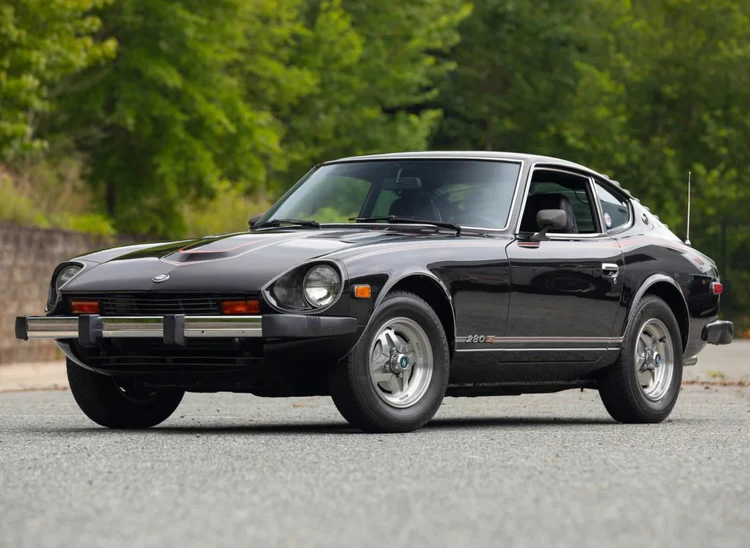
The 280Z offers a great blend of style, performance, and historical significance, making it a rewarding project for car enthusiasts. Restoring a Datsun 280Z can involve everything from engine rebuilding to bodywork, but the end result is a car with classic lines and timeless appeal.
There’s a dedicated community of Z-car enthusiasts, and plenty of aftermarket support for both performance and cosmetic upgrades.
Conclusion
Finding the perfect project car under $5,000 is all about knowing where to look and being patient with your search. Whether you’re interested in a classic muscle car, a nimble Japanese sports car, or a European performance machine, there are plenty of great options available.
Each car on this list offers unique potential for customization and restoration, so it’s up to you to decide which one aligns best with your goals and interests.
Be prepared to invest time, effort, and additional funds into your project, but remember that the process of building and restoring a car can be as rewarding as driving the final product.

